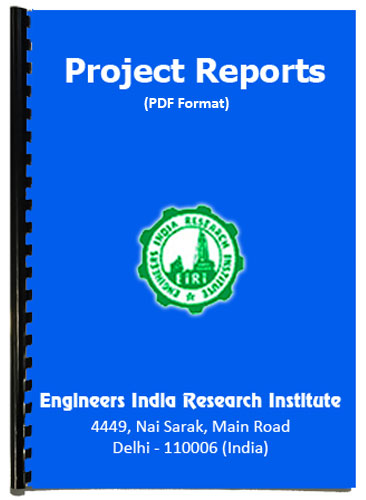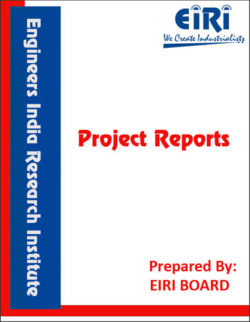PET RECYCLING UNIT (PET GRANULES FROM PET WASTE)
The project report includes Present Market Position and Expected Future Demand, Market Size, Statistics, Trends, SWOT Analysis and Forecasts. Report provides a comprehensive analysis from industry covering detailed reporting and evaluates the position of the industry by providing insights to the SWOT analysis of the industry.
We can prepare PROJECT REPORT as per your INVESTMENT PLAN for BANK LOAN REQUIREMENT and INDUSTRY ANALYSIS. All reports are prepared by highly qualified consultants and verified by a panel of experts.
Have Query? Click Here to Chat
Industry Expert is Online, Chat with him for more detail.

Nowadays, PET bottles are the global number one in beverage packaging. More than 400 billion plastic bottles come on the market every year and PET is becoming increasingly valuable as a recyclable raw material used in the production of beverage bottles. Thus, it is important that all of the production steps applied for the manufacture of your PET bottles are made sustainable for the future.
The gentle treatment of resources and economical use of materials are a must when it comes to sustainable production. Valuable raw materials such as PET must be processed as efficiently as possible while still tapping into every way of saving costs. The PET manufacturing and production process allows for the application of a sustainable approach which can optimally combine environmental awareness and cost effectiveness: the bottle-to-bottle recycling concept.
Bottle-to-bottle recycling plant efficiently recycles used PET bottles – and the recyclate is then reused in the food and beverage industry as recycled PET (rPET). The complete process comprises the cleaning of the used PET bottles and the treatment of the recyclate so that the end product – which could come in the form of flakes, pellets or preforms – can meet the highest quality requirements after the recycling process. European and American certificates (e.g. FDA), and a number of different corporate approvals, all confirm the high quality of the recyclate for direct use in containers which come into direct contact with foodstuffs.
Description
INTRODUCTION
HISTORY OF PET
PROPERTIES & CHARACTERISTICS
USES AND APPLICATION OF PET
RECYCLING OF PET BOTTLES
MARKET SURVEY
US RECYCLED PLASTIC DEMAND, 2006-16
INDIA’S PET RECYCLING MARKET TO OUTGROW BY 2019
OVERVIEW OF PLASTIC RECYCLING
MANUFACTURERS/SUPPLIERS OF PET GRANULES
ADVANCEMENT AND PRACTICES IN PET RECYCLING
POST CONSUMER PET WASTE SORTING PROCESSING FOR SALE
FURTHER TREATMENT
PROCESS OF PET RECYCLING UNIT
SEQUENCES OF OPERATION INVOLVED IN PET RECYCLING UNIT
MANUFACTURING PROCESS IN DETAILS
PROCESS FLOW DIAGRAM
LOWERING THE COST OF PET RECYCLING THROUGH BETTER LABEL TECHNOLOGY
PLANT LAYOUT
PRINCIPLES OF PLANT LAYOUT
PLANT LOCATION FACTORS
EXPLANATION OF TERMS USED IN THE PROJECT REPORT
ADDRESSES OF CONSULTANT
SUPPLIERS OF PLANT AND MACINERIES
SUPPLIERS OF PLANT & MACHINERIES (IMPORTED)
SUPPLIERS OF RAW MATERIAL
APPENDIX – A:
01. PLANT ECONOMICS
02. LAND & BUILDING
03. PLANT AND MACHINERY
04. OTHER FIXED ASSESTS
05. FIXED CAPITAL
06. RAW MATERIAL
07. SALARY AND WAGES
08. UTILITIES AND OVERHEADS
09. TOTAL WORKING CAPITAL
10. TOTAL CAPITAL INVESTMENT
11. COST OF PRODUCTION
12. TURN OVER/ANNUM
13. BREAK EVEN POINT
14. RESOURCES FOR FINANCE
15. INSTALMENT PAYABLE IN 5 YEARS
16. DEPRECIATION CHART FOR 5 YEARS
17. PROFIT ANALYSIS FOR 5 YEARS
18. PROJECTED BALANCE SHEET FOR (5 YEARS)



